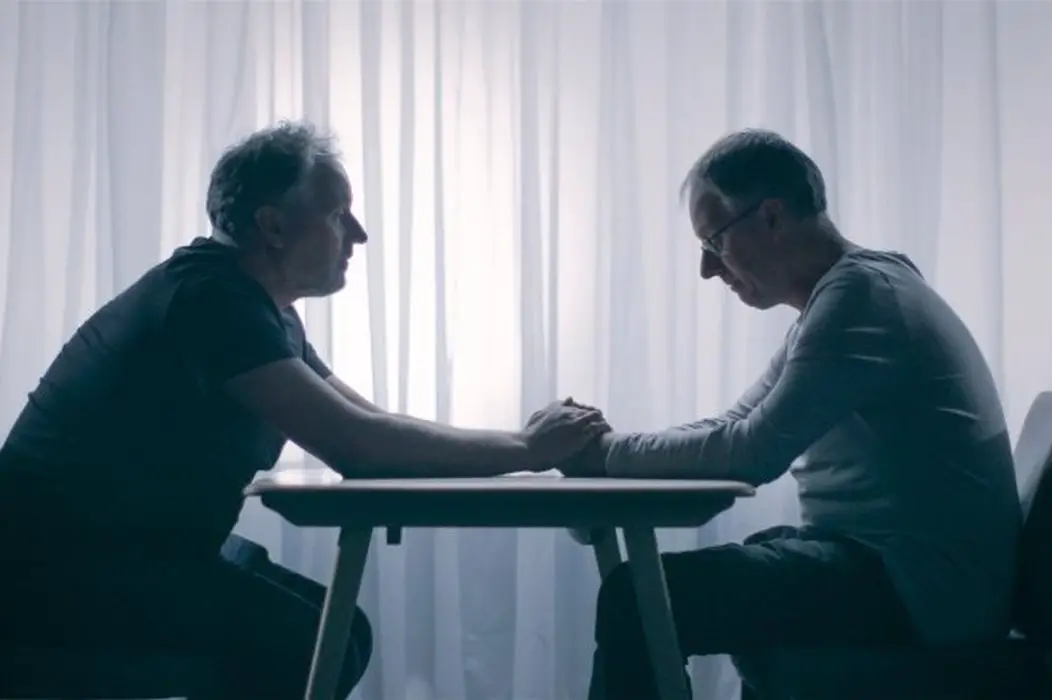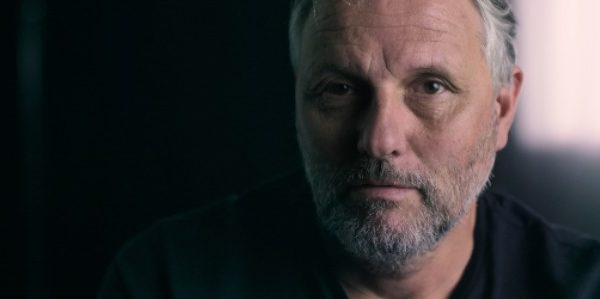TELL ME WHO I AM: A Harrowing & Painful Exercise On Childhood Trauma

Reyzando Nawara is a passionate film and TV enthusiast from…
Everything that’s happened to us in our childhood, along with all the memories that we gather from it, will have such a huge impact on the way we grow up, informing who we’ve become and allowing us to understand how to be the better version of ourselves. However, not everything about our childhood is always candy and dandy. In fact, for every hundred memories that we try to hold on to, there are a hundred and one more bad memories that we try to compartmentalise on the inside, hoping that by repressing it, it will allow us to just move forward and forget about it. Those bad memories can come from many things, but mostly, they come from the trauma that we experienced as children. Physical or sexual abuse, for instance, are among many things that clearly can be traumatic for children.
We want to outrun it and ignore the pain that comes from it, or at least try to. But no matter how hard we try, these dark parts of our childhood will somehow always find its way to have a leverage over the way we grow up, because after all, trauma isn’t just a personal souvenir that can just disappear whenever we want it. It is, in fact, something that we all have to validate if we want to heal and move forward from it.
This is ultimately what Ed Perkins‘ documentary feature Tell Me Who I Am captures. It’s a harrowing and heartbreaking examination on the lasting impact of childhood trauma. While it may look like last year’s Three Identical Strangers on the outside, what sets this Netflix documentary apart is the way Perkins compellingly structures this documentary into an ambiguous and haunting mystery drama that asks us whether it is okay to lie to someone you love in order to protect them from lifelong ache, while at the same time examining the cost of that lie.
Warning: spoilers ahead.
This is the Story of Alex and Marcus
Tell Me Who I Am is the story of identical twin brothers named Alex Lewis and Marcus Lewis, and their shared connection that comes from a childhood trauma they experienced more than three decades ago. It begins with a tragic motorcycle which happened to the former in 1982 that left him in a coma. When he awakened, he forgot about everything — including his own name and his mother — except his twin. It eventually became a new and strange start for Alex, but thanks to Marcus, who took it upon himself to teach him all the basic skills, like how to tie a shoelace or how to ride a bike, he was never alone in navigating the aftermath of this tragedy.

When Alex began asking Marcus about their childhood and family, Marcus would show him a picture of them having fun on a beach vacation, suggesting to him that he had a very nice life and loving parents. Alex, of course, believed him and accepted everything his brother said to him without ever thinking to press any further. In a sense, Alex rebuilt his whole life based on what Marcus told him over the next decades. But soon as the two siblings grew even closer, Alex started to realize that both his father and mother grew even more distant to him and Marcus. This eventually stimulates him to dig for more information from his twin, like why couldn’t they have the front door keys or why should they sleep in the shed or why there are areas in their own house that they weren’t allowed to go.
At first, Marcus were still able to provide the information that Alex so desperately wanted to know. But soon after their mother’s death a couple years later and a disturbing photo of them is found in her closet, Marcus is confronted by Alex with a shocking question that he has tried to avoid getting from him for years. It’s at this point that Marcus finally reveals to him that both of them were sexually abused by their horrible mother, even though, in the end, what Alex got from his brother was still not enough to answer his curiosity.
The Lasting Impact of Childhood Trauma
Perkins masterfully uses this shocking revelation and Alex’s itches on getting to know more from Marcus as a way to build his narrative as an exercise on the trauma that both Alex and Marcus had, one from the sexual abuse they had to experience as children and one more from knowing that your closest ally has been lying to you for a reason that you don’t seem to understand, without trying to exploit their pains for the sake of toying with the audiences’ emotions. Instead, Perkins‘ direction is so sensitive that it’s impossible to not see Tell Me Who I Am as a therapeutic experience that offers a cathartic examination on how this brothers deal with trauma and lies.
It’s overall a simple filmmaking, but the way Perkins‘ conjures the horror by evoking old photos of Alex and Marcus while keeping the main narrative focus solely on their emotions, proves to make the film become incredibly rich in its content and intentions. He clearly understands that the healing process of trauma is so complex, so instead of showcasing the “what now” scenario, Perkins‘ wisely chooses to render the film simply at illustrating that the lasting impact of childhood trauma can be so alienating and painful, even when those who experiences the trauma has been trying to repress the memory in the deepest compartment inside of their body.

Through Marcus’ decision of lying to Alex, the film demonstrates that it is indeed easier to just ignore and get rid of the pain by creating a new reality that allows you to forget about it. But at the same time, Tell Me Who I Am also suggests that repressing the pain that comes from trauma is dangerous as much as it is futile. When a person represses their trauma all at once, it ultimately envelopes their every waking moment. They become fragile and vulnerable, and the nagging sense of having to shoulder the pain by themselves can be so vicious once it becomes uncontainable. We can see this idea the moment Alex confronted Marcus, where he froze right away after all the pain resurfaces along with the question he’s gotten from Marcus.
Tell Me Who I Am doesn’t justify nor blame Marcus’ lies, but rather depicts it to show us that what he did actually comes from the pain of his own trauma. He lies to Alex not just because purely he wants to protects his brother from the pain that he still feels, but also because it gives him an opportunity to bury all of it by manufacturing an alternate reality where the abuse has never happened. It’s a coping mechanism that allows him to repress the trauma and be in a place where he can become free from it, and Perkins clearly understands that, because he lets Marcus plead his case and explain his reason of why he decided to continue telling the lies in the first place.
Marcus, Alex, and the Rawness of Male Vulnerability
This portrait of the toll that trauma can give to someone is impactful, but Tell Me Who I Am is also about the rawness of the brotherly relationship that Marcus and Alex have. Sure, the questions about whether Alex should forgive Marcus or not remains at every minute, but we shouldn’t be bothered about that. In fact, what we should talk about when we see this powerful documentary is the true love that this two siblings have for one another, despite the lies, guilt, and what has changed ever since the lies were revealed – what has helped them to deal with this trauma.

The conversation that happens during the final act of the movie is built upon this rawness and intimacy that Marcus and Alex’s relationship has. And Ed Perkins smartly zooms in on the way their relationship binds them and allows them to survive the horrible childhood trauma that they experienced. If Marcus didn’t love Alex, he wouldn’t have helped him to rebuild his life, which in a way also wouldn’t allow him to cope from the trauma by creating a new reality for his brother. Same goes for Alex, if he didn’t love Marcus, he wouldn’t have understood that what he did, lying to him this whole time, was actually a way for Marcus to protect him from the pain he has to remember by himself. “Alex lost his memory by accident,” says Marcus, “and I lost my memory voluntarily. And it was great. And I was free. And I could be rid of all the things she’d done to me.”
A Tough But Important Experience
In the end, what Tell Me Who I Am presents is a very tough and unpleasant experience that will leave you emotionally heartbroken and even angry over the fact that there is actually a lot of people out there who experience the same things that Marcus and Alex did. But because Ed Perkins never tries to exploit those pains and is instead fascinated more with the cathartic idea of having these two siblings understand each other, it becomes an experience that’s both remarkable and powerful.
So what do you think of Tell Me Who I Am? Let us know in the comments below!
Tell Me Who I Am is available to stream on Netflix.
Does content like this matter to you?
Become a Member and support film journalism. Unlock access to all of Film Inquiry`s great articles. Join a community of like-minded readers who are passionate about cinema - get access to our private members Network, give back to independent filmmakers, and more.
Reyzando Nawara is a passionate film and TV enthusiast from Indonesia. When he's not watching TV and movies, he likes to cook and make sorbet.













